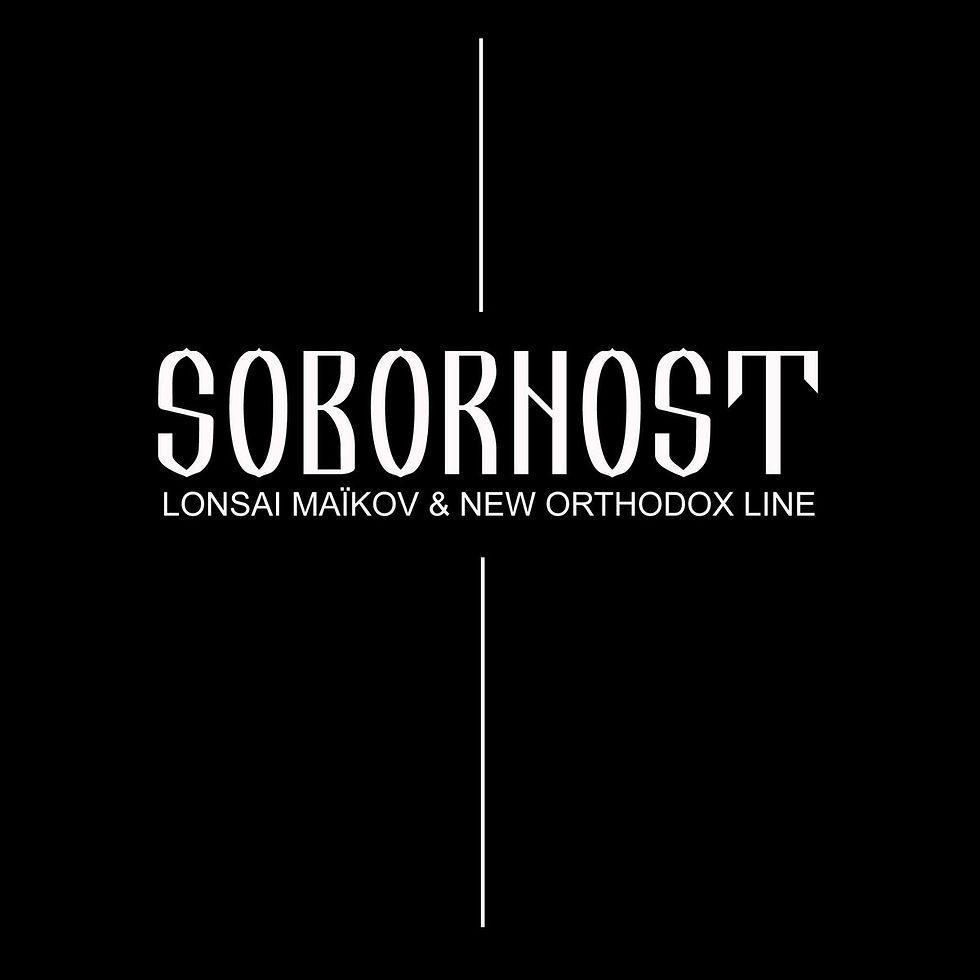Sep 23 - Khomiakov, Russian Theologian of Community
- Pearl of Great Price
- Sep 28, 2021
- 3 min read

Today in 1860 we remember the Death from cholera of the Russian theologian Alexei Khomiakov, while treating peasants during an epidemic. The Cofounder of the Slavophile movement : was a multi-talented man, theologian, philosopher, poet and amateur artist. Even though he had been subject to censorship during his life, but he became a significant influence on Fyodor Dostoevsky.
Khomiakov developed the idea of sobornost to underline the need for co-operation between people, at the expense of individualism. Sobornost can be described as a Spiritual community of many jointly people focusing on what is common between them. Khomiakov believed that the West was progressively losing its unity because it was embracing an Aristotelian understanding of unity that prioritised individualism. He originally used the term sobor to designate co-operation within the Russian obshchina, the peasant village communities as opposed to individual farmsteads in Imperial Russia. These communities were united by a set of common convictions and Eastern Orthodox values, as opposed to the cult of individualism in the West. In Russian a "sobor" is also the diocesan bishop's "cathedral church"; and "sobor" is also a churchly "gathering" or "council" ". Khomyakov's understanding of the "catholicity" of the Church emphasised "universality", in contrast to Rome which he felt emphasised unity. For Khomyakove, this reflected the perspective of the root-meaning of the word "liturgy" meaning "work of the gathered people". Therefore, true freedom must be "actualized in sobornost, not in individualism". Developing his insight - sobornost became a site of freedom: and free sobornost in love, is where one finds the true organism of the Church.

This was a very bold conception of the Church, often faced resistance from other theologians. He was accused by many of essentially being Protestant, although this missed out some of the more nuanced features of his thought. Khomiakov saw special significance in sacred tradition with the spirit of sobornost in it. This accepted the authority of tradition, unlike Protestantism, although For Khomiakov’ the reformers cry of ‘sola scriptura’ was wrong as Holy Scripture is only an inner fact of the life of the Church , and so must be it is grasped through sacred tradition. However his critics accused him of immanentism- that is taking away the transcendent truth of Christianity by placing so much emphasis on human agreement.
The Russian religious philosopher, Nikolai Berdyaev explained Khomyakov's significance in the Orthodox tradition in his attempt to free Christianity from rationalism. Khomiakov will be eternally remembered for his statement of the problem of the Church and his attempt to reveal the essence of the Church from within, not from outside. For Khomiakov the Church was a living organism, a unity of love and therefore could not be adequately described using a formula. The essence of the church was inexpressible as, a living organism, a unity of love, ineffable freedom, the truth of the faith was not subject to rationalization. Therefore she could only be known only by those who are within her, by those who are her living members. The problem of trying to formulate the essence of the Church in a rational way was an unwelcome inheritance from scholastic theology in transforming the Church from a mystery known only to believers into something subject to the knowledge of objective reason.

Slavophilia, an intellectual movement, was developed in 19th-century Russia determined to protect what they believed were unique Russian traditions and culture. The role of the Orthodox Church was seen by them as more significant than the role of the state. Socialism was opposed by Slavophiles as an alien thought, and Russian mysticism was preferred over "Western rationalism". Rural life was praised by the movement, which opposed industrialization and urban development, and protection of the "mir" was seen as an important measure to prevent the growth of the working class. The movement originated in Moscow and drew on the works of Greek Church Fathers, and was essentially conservative and traditionalist – it claimed Russia has its own distinct way, which should avoid imitating "Western" institutions criticising modernisation of Peter the Great and Catherine the Great. Khomyakov was widely respected, and a contemporary insisteds that "there is hardly any need to doubt the significance of Khomiakov the thinker and the nobility of his person. No one doubts his talents and intellect, nor the purity of his person and the selflessness of his intentions
.jpg)


Comments